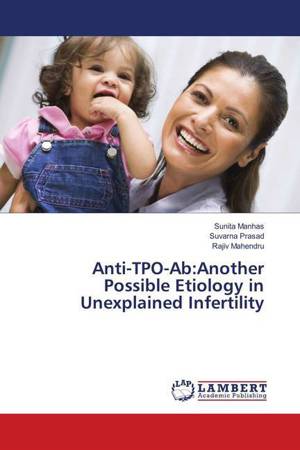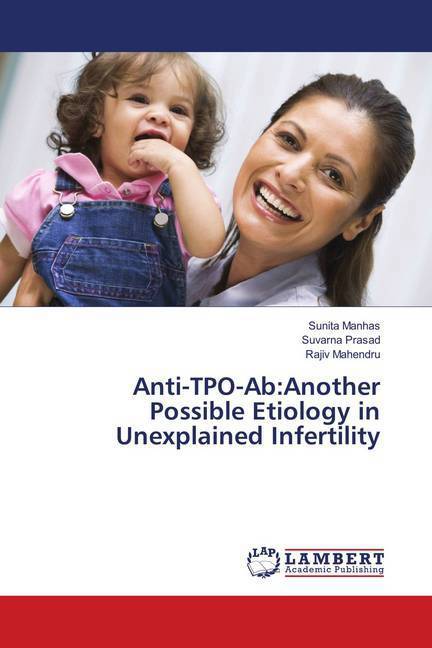
- Afhalen na 1 uur in een winkel met voorraad
- Gratis thuislevering in België vanaf € 30
- Ruim aanbod met 7 miljoen producten
- Afhalen na 1 uur in een winkel met voorraad
- Gratis thuislevering in België vanaf € 30
- Ruim aanbod met 7 miljoen producten
Anti-TPO-Ab:Another Possible Etiology in Unexplained Infertility
Sunita Manhas, Suvarna Prasad, Rajiv Mahendru
Paperback | Engels
€ 55,45
+ 110 punten
Omschrijving
Autoimmune thyroid disease (AITD) is characterized by the presence of antithyroid antibodies, specifically antibodies to thyroperoxidase. These antibodies have been reported in 5%-10% of reproductive-aged women, making AITD the most common autoimmune disorder affecting this population. AITD can present without thyroid dysfunction and, thus, remains undiagnosed. Immunological factors appear to play an important role in the reproductive processes of fertilization, implantation, and feto-placental development. The presence of auto-antibodies has been associated with reproductive failure, particularly thyroid antibodies. About 5 to 15% of euthyroid women have thyroid antibodies, and such individuals are at risk of developing thyroid dysfunction. Thyroid dysfunction is a condition known to reduce the likelihood of pregnancy and to adversely affect pregnancy outcome by interfering with normal ovarian function and is more frequent in women with positive anti-TPO Ab.
Specificaties
Betrokkenen
- Auteur(s):
- Uitgeverij:
Inhoud
- Aantal bladzijden:
- 144
- Taal:
- Engels
Eigenschappen
- Productcode (EAN):
- 9783659896217
- Uitvoering:
- Paperback
- Afmetingen:
- 150 mm x 220 mm

Alleen bij Standaard Boekhandel
+ 110 punten op je klantenkaart van Standaard Boekhandel
Beoordelingen
We publiceren alleen reviews die voldoen aan de voorwaarden voor reviews. Bekijk onze voorwaarden voor reviews.










